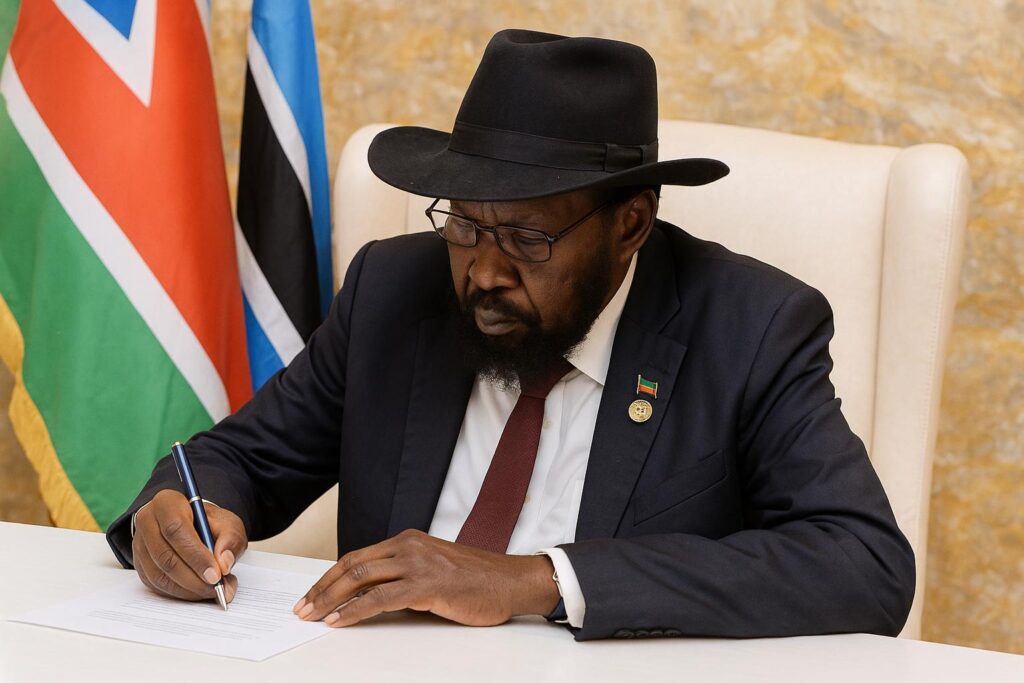Kiir Reshapes Abyei Negotiation Team
President Salva Kiir Mayardit on Monday reconstituted the high-level committee charged with steering talks on Abyei’s final status, signaling renewed political energy after months of diplomatic lull between Juba and Khartoum.
The panel will be led by economist Dr Benjamin Bol Mel, with veteran negotiator Pieng Deng Majok as deputy. Ministers responsible for presidential affairs, foreign relations, defence and internal security sit alongside lawmakers and civil-society advocate Dier Tong Ngor.
Mandate Targets High-Level Dialogue
According to the republican decree, the team must engage Sudanese counterparts, brief the presidency regularly, and craft a roadmap capable of translating technical agreements into durable arrangements for administration, security and resource sharing.
Officials inside the presidency say weekly progress updates are expected, reflecting Kiir’s desire to keep the Abyei file firmly on his desk rather than dispersed across ministries.
Global Stakeholders Watch Closely
At the United Nations Security Council in November 2024, Britain’s deputy envoy James Kariuki warned that “the political vacuum must close”, applauding UNISFA for preventing clashes since April yet challenging the parties to unfreeze negotiations.
Regional diplomats interviewed by this magazine argue that Kiir’s reshuffle responds directly to that appeal and could unlock fresh technical assistance from the African Union and IGAD.
Abyei’s Complex Historical Claims
Abyei sits atop oil reserves and grazing corridors, claimed by the Ngok Dinka and traversed seasonally by Misseriya herders. The 2005 Comprehensive Peace Agreement promised a referendum, but wrangling over voter eligibility stalled the ballot.
In 2013 the Ngok community organised a unilateral poll that favoured joining South Sudan; neither Juba nor Khartoum recognised the outcome. Tensions have simmered since, though large-scale violence has remained sporadic.
What Comes Next for Disputed Region
Presidential adviser Tor Deng Mawien told this publication that the reconstituted committee “will table concrete options within weeks, including joint administration modalities and a possible internationally supervised plebiscite.”
Civil-society groups argue that any solution must respect pastoral routes and incorporate revenue-sharing to avoid fuelling fresh grievances. Observers say success will hinge on Khartoum’s political bandwidth amid Sudan’s internal turbulence.
For now, Kiir’s manoeuvre has injected momentum that residents on both sides of the Kiir River hope will finally translate diplomatic paperwork into an agreement that secures borders, livelihoods and lasting peace.


